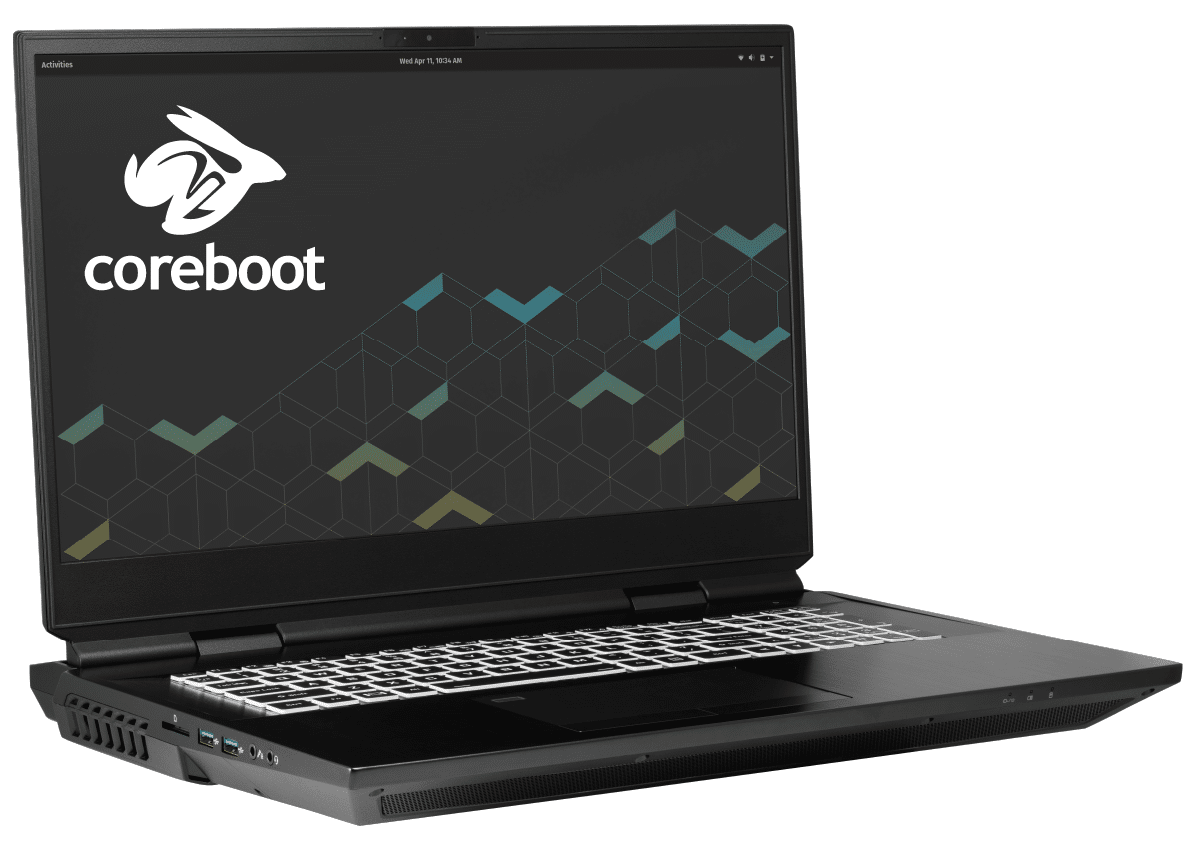
System76 Bonobo WS Linux laptop returns with Core i9 and GeForce RTX 2080 Super
Fans of computer maker and seller System76 will undoubtedly remember the Bonobo WS. This was a desktop-class laptop that provided insane power. Of course, calling it a "laptop" is only true in form factor -- it isn't likely that many will use the hulking beast on their laps. Instead, it is intended to make high performance portable -- and then be used on a desk or table.
Today, System76 brings the Bonobo WS Linux laptop back with very modern specifications. In fact, on the top-end, it can be configured with a 10th generation Intel Core i9 and NVIDIA GeForce RTX 2080 Super. All of this power is cooled by an impressive number of heat-pipes and dual-fans.It is absolutely loaded with useful I/O, including ports on the rear. For an operating system, you can choose between Ubuntu and System76's own Ubuntu-based Pop!_OS. Best of all, it comes with Coreboot plus System76's own Open Firmware and Embedded Controller Firmware.
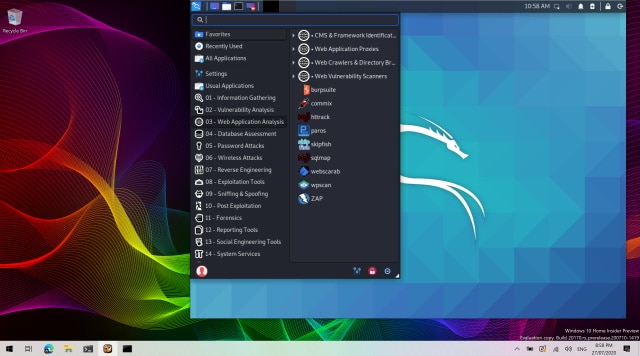
Win-KeX is a graphical desktop environment for Kali Linux running in Windows Subsystem for Linux
When Microsoft updated Windows Subsystem for Linux to version 2, there was a lot for developers to take advantage of.
Among those making good use of the fact that a genuine Linux kernel is now virtualized in WLS 2 is the team behind Kali Linux. They have created a new package called Win-KeX that gives the distro a graphic desktop environment, and it comes alongside the release of Kali Linux 2020.3.

Debian-based MX Linux 19.2 KDE Edition now available for download
A couple months ago, MX Linux 19.2 was released. It's a really solid operating system that has been growing in popularity lately. The problem is, it uses Xfce for its desktop environment. While Xfce isn't bad, it isn't the most attractive DE -- it is designed with a bigger emphasis on being lightweight as opposed to having a lot of eye candy. For users with meager hardware, that is absolutely fine. However, for those with more powerful computers, there could be a feeling of disappointment by the ho-hum visuals.
Well, for those that love MX Linux 19.2 but want a more beautiful user interface, I have great news -- a KDE Edition of the operating system is now available for download. The distro uses KDE Plasma 5.14.5 and the Debian (AHS) 5.6 kernel. MX Linux 19.2 KDE comes with plenty of excellent software pre-installed too, such as GIMP 2.10.12, Mozilla Firefox 79, LibreOffice 6.1.5, VLC 3.0.11, and more.

Russia is targeting Linux with Drovorub malware
The NSA has issued a warning about a new round of cyberattacks by Russia. This time, the GRU (Główny Zarząd Wywiadowczy, the Russian General Staff Main Intelligence Directorate) is targeting Linux machines.
To orchestrate the attacks, the GRU is using a malware suite called Drovorub. The suite is made up of four modules and uses a variety of techniques to hide itself and evade detection.

Ubuntu-based Linspire 9.0 is a Linux distro that costs money -- don't buy it
There are many great things about Linux-based operating systems. Not only are they often lightweight and good for older hardware, but they can be customized too thanks to the various available desktop environments. Unlike Windows, which only has one user interface, Linux distros can have several. Of course, one of the biggest benefits of Linux is that it is free. There are countless great operating systems based on the open source kernel that cost nothing, such as Ubuntu and Fedora.
The thing is, Linux-based operating systems don't have to be free. In fact, just because the Linux kernel is open source, that does not mean that a Linux distribution can't incorporate closed source code. This brings us to Linspire -- one of the rare Linux-based operating systems that costs actual money. Believe it or not, it isn't even cheaper than Windows 10 Pro! Version 9.0 was recently released, but you probably shouldn't buy it.
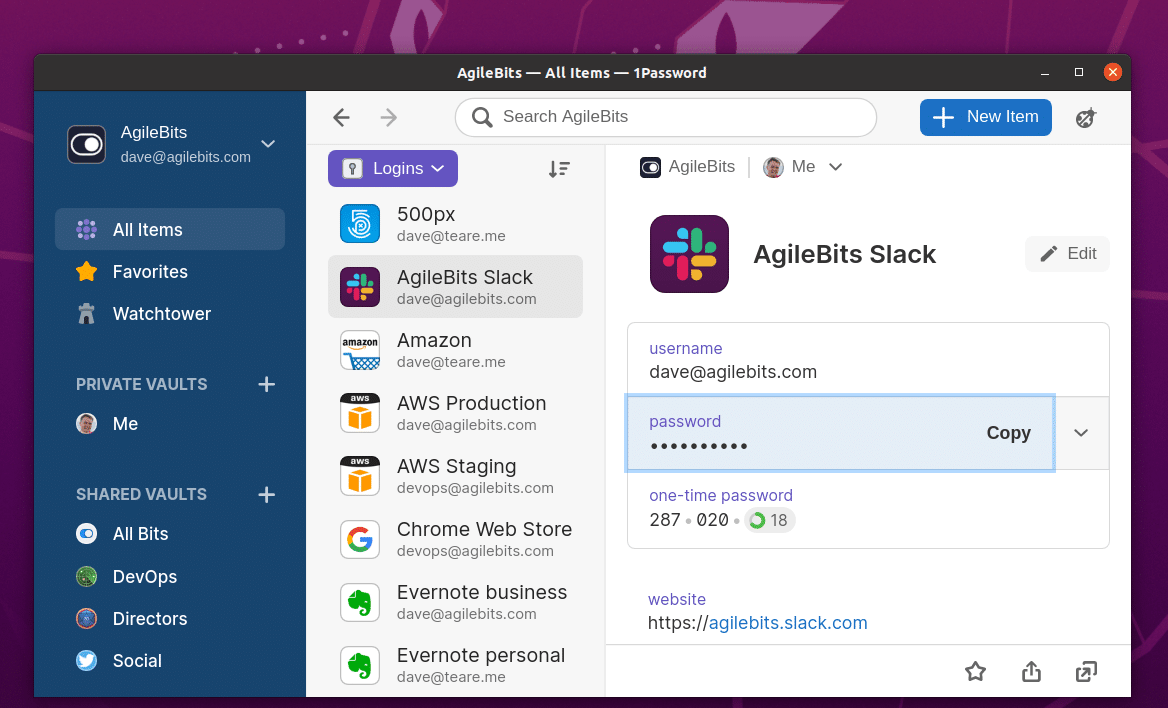
1Password finally comes to Linux -- Ubuntu, Debian, Fedora, and more!
If you aren't using a password manager to both create and store your various online passwords, you are doing yourself a great disservice. True, storing your passwords in the cloud seems counter-intuitive, but in reality, it is far more secure than re-using passwords or writing them down. Make sure you are also using Two-Factor Authentication (2FA) whenever possible too.
On the desktop, there are many password managers for Windows and Mac, but on Linux, things are far more limited. For instance, 1Password is arguably the best password manager in the world, yet despite a decade of requests for it to come to Linux, it never did. Sure, Linux users could use the 1Password X browser plugin, but there was no native Linux version. Well, folks, this is no longer true -- as of this month, developer Agilebits has finally brought 1Password to Linux as a development preview!

Mageia 8 Beta 1 Linux distro now available with KDE Plasma, GNOME, and Xfce
Development of Mageia 8 seems to be progressing nicely, which is good news for fans of the Linux-based operating system. Last month, we shared that the first Alpha of the distribution was available for testing, and now today, the first Beta arrives.
As with the Alpha, the Beta is available with your choice of three desktop environments -- KDE Plasma, GNOME, and Xfce. All three are available in 64-bit Live ISO images, but the 32-bit variant of the operating system is limited to Xfce only. This makes sense, as 32-bit-only computers in 2020 are quite ancient and under-powered, while Xfce is the most lightweight DE of the bunch.

Linux in education: ViewSonic donates 300 Raspberry Pi devices to students
There is a lot of negativity in the world these days such as the COVID-19 pandemic, record unemployment, and the massive explosion in Beirut, Lebanon. Sometimes it can feel like positive news doesn't exist anymore. The truth is, good news is always happening, but it isn't always reported.
Well, today we are happy to report a feel-good story. Popular company Viewsonic, known for manufacturing high-quality computer displays, is donating 300 Raspberry Pi thin clients to the Los Angeles County Alliance for Boys and Girls Clubs. These little computers are a great tool for teaching kids about Linux.

The Linux Foundation aims to improve open source software security
Open source software has become commonplace in all sorts of environments. But its very nature means that those responsible for their users' or organization's security need to be able to understand and verify its security.
Today The Linux Foundation is announcing the formation of the Open Source Security Foundation (OpenSSF). This is a cross-industry collaboration that brings together leaders to improve the security of open source software by building a broader community with targeted initiatives and best practices.

Huge BootHole flaw in GRUB2 bootloader leaves millions of Windows and Linux systems at risk from hackers
A serious vulnerability dubbed BootHole has been discovered in the GRUB2 bootloader. Millions of systems run the risk of being exposed to hackers -- primarily those running Linux, but Windows is also affected. Discovered by security researchers at Eclypsium, the BootHole vulnerability has been assigned CVE-2020-10713 ("GRUB2: crafted grub.cfg file can lead to arbitrary code execution during boot process") and a CVSS rating of 8.2.
The flaw can be exploited to gain arbitrary code execution during the boot process, even when Secure Boot is enabled and virtually all Linux distributions are affected. But more than this, the vulnerability also leaves Windows systems that make use of Secure Boot with the standard Microsoft Third Party UEFI Certificate Authority open to attack.
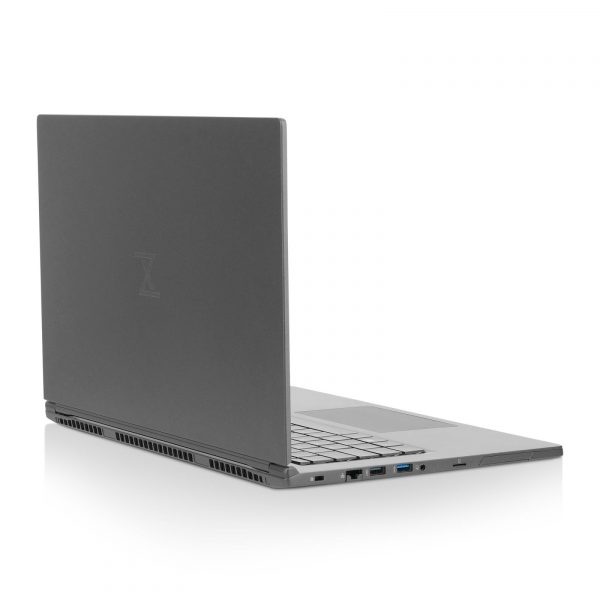
Tuxedo Computers Pulse 15 Linux laptop is powered by AMD Ryzen 4000
We recently told you about the beautiful 3rd-gen KDE Slimbook -- the world's first Linux Ultrabook with an AMD Ryzen 4000 CPU. Well, it seems there is yet another Linux laptop powered by AMD's latest mobile processors, this time from Tuxedo Computers.
Called "Pulse 15," it has (as you can expect from its name) a 15.6-inch display. The screen resolution is 1080p, and it features 60Hz refresh and 100% sRGB coverage. Its I/O includes three USB-A ports (two are 3.0, one is 2.0), one USB-C at 3.0 speed, HDMI, Gigabit Ethernet, 3.5mm audio, and a micro SD card reader. And yes, it comes with Intel Wi-Fi 6 and Bluetooth 5.1.
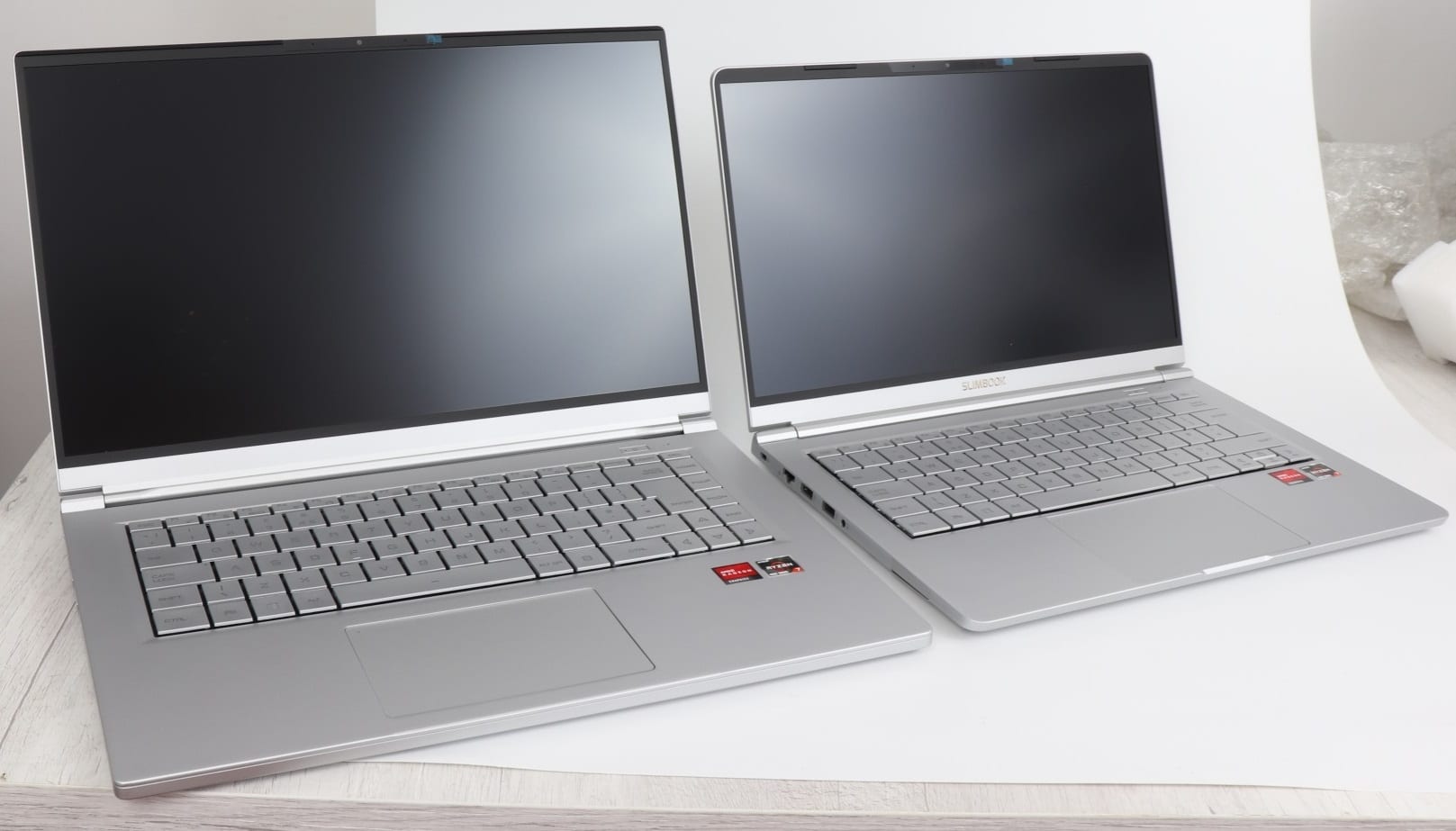
KDE Slimbook (3rd gen) is world's first Linux Ultrabook with an AMD Ryzen 4000 CPU
There are no shortage of laptops shipping with Linux-based operating systems these days. Chromebooks aside, you can buy notebooks from System76, Dell, and Tuxedo Computers to name a few. True, you can also buy a Windows laptop and install a Linux distribution yourself, but why should you have to? After all, some Linux users define themselves by the operating system they use. For them, it can be quite annoying to have their precious laptops sullied by a Microsoft OS.
Another seller of Linux computers is Slimbook. That company is largely known because the KDE Community chose to partner with it for the "KDE Slimbook," which is an officially sanctioned KDE laptop that runs KDE neon. Today, the third generation KDE Slimbook is revealed, and it is very big news. Why? Because it is the world's first Linux Ultrabook to be powered by AMD's Ryzen 4000 series of processor. There are two screen size options, 14-inch and 15.6-inch, which are both 1080p. They both feature a magnesium body with a thickness less than 20 millimeters.
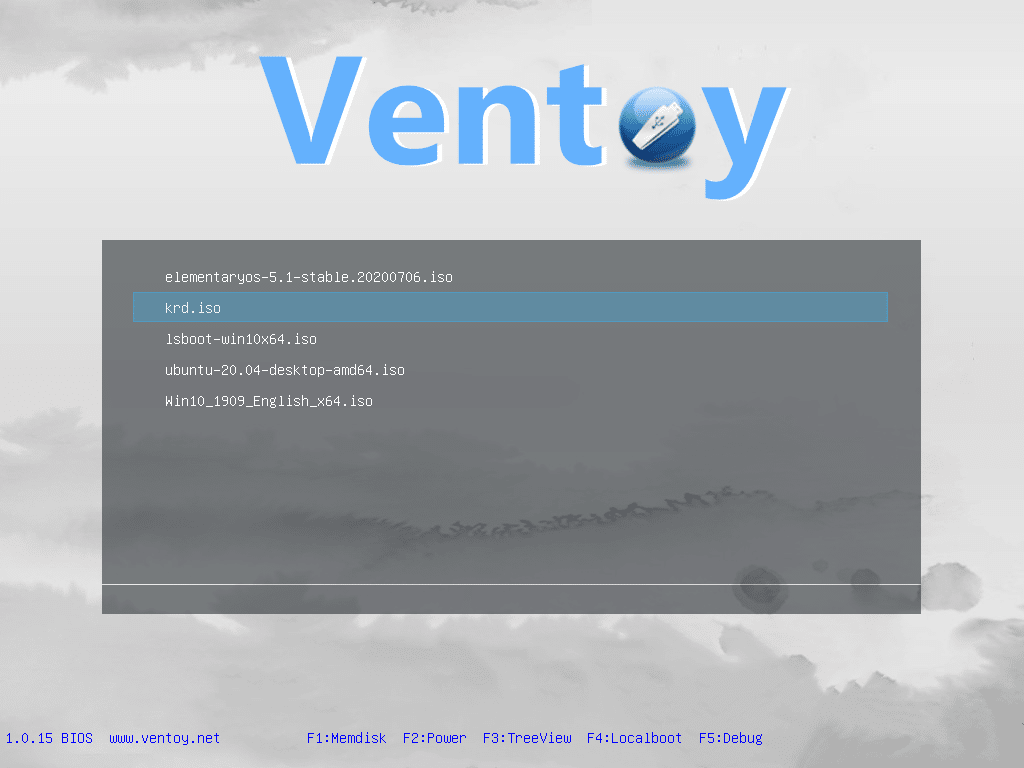
Consolidate all your boot media on to a single flash drive with Ventoy
How many boot discs or flash drives do you own? It’s possible to build up quite a collection, from Linux live CDs and antivirus rescue discs to boot media for apps as diverse as drive imaging to data recovery.
Thanks to Ventoy 1.0.15, you can now consolidate all your boot media: instead of five, six or however many boot discs you need, everything is stored on a single flash drive. The larger the flash drive, the more boot media you can install on it.
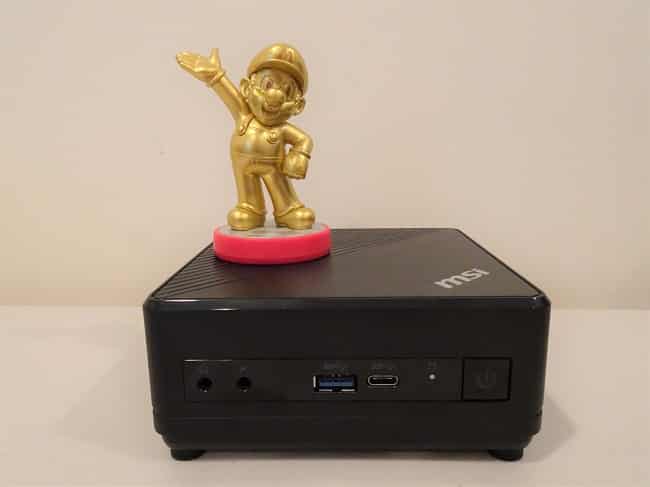
MSI Cubi 5 is a brilliant Linux mini desktop computer (yes, it runs Windows 10 too)
The Intel NUC has long been a favorite of Linux users, as the diminutive computer just works out of the box. Since almost everything is Intel-based -- including the graphics and Wi-Fi card -- you never have to worry about hardware having compatibility issues. They have historically been easy to upgrade too, allowing users to upgrade RAM, storage, and wireless. Sadly, new NUCs have soldered Wi-Fi cards, so you are essentially stuck with what it comes with. That stinks -- Intel is acting like Apple!
Thankfully, there is another mini computer that is also based on 10th generation Intel Core processors, but it does allow the wireless card to be upgraded. MSI's "Cubi 5," as it is called, is very similar to Intel's NUC, but it has better upgradeability. And yes, all modern Linux distributions will install and run without issue. I have been testing the Intel Core i5-10210U variant (there are also Core i3 and i7 models), which is a quad-core with 8 threads. While my configuration came with Windows 10 Home pre-installed, I immediately added Fedora to the mix in a dual-boot configuration.

Open source champion Microsoft brings Procmon to Linux
Historically, Microsoft was an enemy of the open source community. In more recent years, however, the Windows-maker has become an ally. In fact, under the leadership of Satya Nadella, it can be said that Microsoft is now an open source champion! Crazy, right?
If you want proof, look no further than Windows Subsystem for Linux. I mean, Linux is pretty much inside of Windows now. Not to mention, Microsoft is a huge contributor to open source projects. Hell, the Windows-maker even bought GitHub! And now, the company takes things even further. You see, Microsoft has ported the Windows Procmon tool to Linux.
